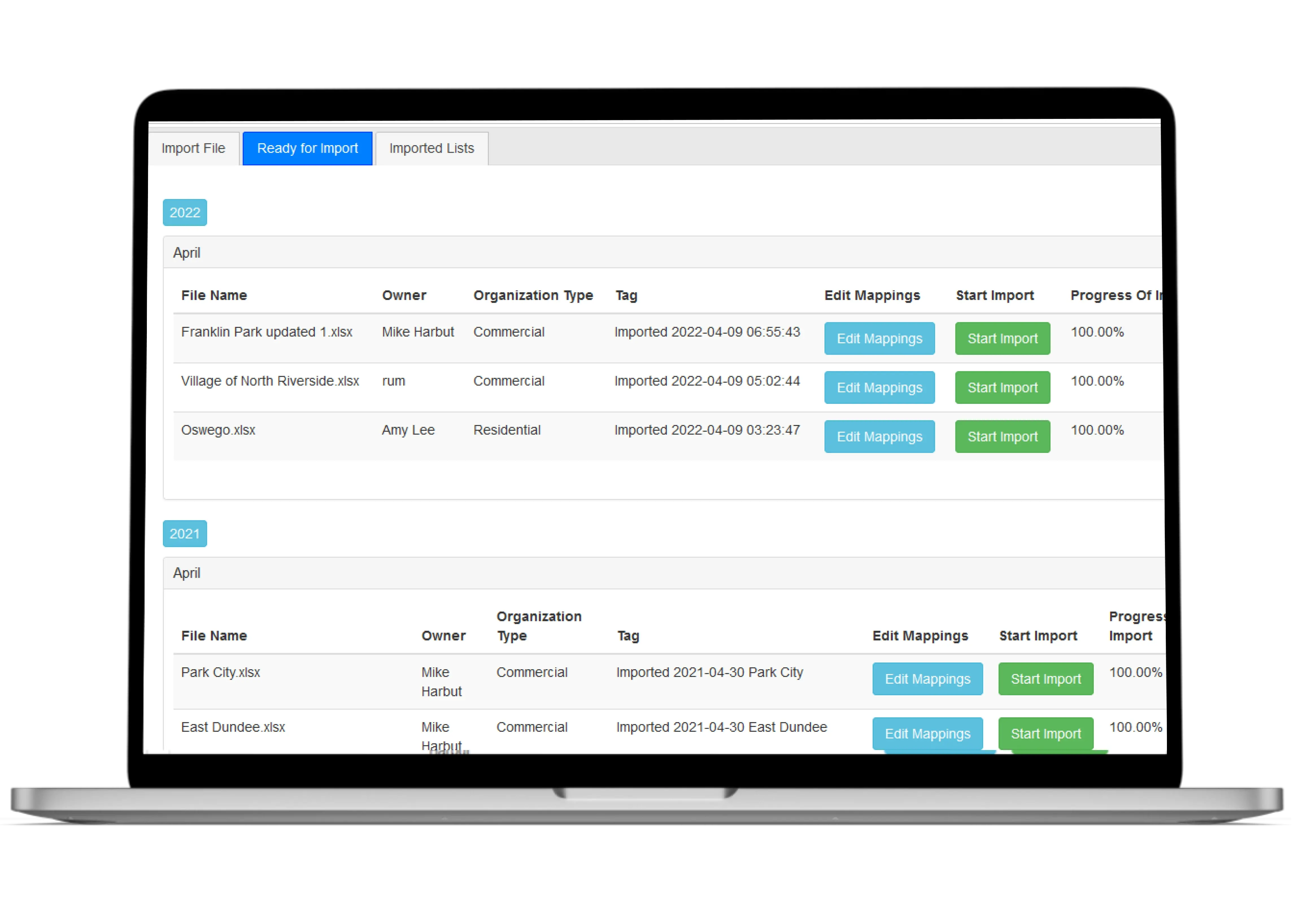In the high-tech-driven 21st century, digitalization carries the day penetrating an ever-growing number of domains. This list includes not only software-susceptible realms such as transportation, education, and healthcare but also more old-school ones like real estate or sports. The construction industry belongs to the latter group and is considered one of the most conservative fields. In it, the personnel still largely relies on whiteboards, flipcharts, paper forms, or – at the very best – excel tables to handle their workflow processes. Yet, the benefits of construction management software are weighty enough to leverage it for the handling of all major shop floor activities.

Software for Construction Management Explained
To do their job well, a manager in a construction company has to control the budget, monitor schedules, keep track of the quality of performance as well as coordinate various employees, materials, and equipment used in the process of building. In the early third millennium, the scope and diversity of such tasks can't be dealt with manually, so state-of-the-art digital tools can help greatly in reaching maximum efficiency in completing these (and plenty of other) assignments.
 Software for construction project management is a set of such tools that centralize all information and track tasks a company in the sector performs. By leveraging it, companies can enhance planning, coordination, and supervision over the implementation of projects they run.
Software for construction project management is a set of such tools that centralize all information and track tasks a company in the sector performs. By leveraging it, companies can enhance planning, coordination, and supervision over the implementation of projects they run.
The market for specialized software in the niche was worth over $1,427 billion last year and is expected to manifest a solid 7.1% CAGR within the next seven years, reaching a breathtaking $2,304 billion by 2028. Such a promising revenue niche attracts multiple IT vendors who offer construction company software of different types for administering residential, institutional, industrial, commercial, highway, and other projects of any size or complexity. These solutions cover not only all possible construction schemes but can cater to the needs of various specialists in the sector.
Learn about the impact of artificial intelligence on the construction industry
Who Is Construction Management Software Meant for?
There are multiple stakeholders involved in building projects, each pursuing their own interests. Managers need to control the progress, team members want to keep a communication channel between themselves open 24/7, and customers wish to make sure things are running seamlessly within time and budget. Realizing the diversity of purposes, software providers go to all lengths to meet each of them halfway and develop a solution that would be a good crutch for addressing the challenges they face in their work.
-
Products for building owners. Since these people are responsible for the project implementation portfolio, software honed for their needs must assist them in keeping track of the project timeline and budget. In this way, they will be better able to enforce transparency for the benefit of all stakeholders.
-
Products for general contractors. They enable project cost control, documentation handling, and streamlining of planning.
-
Products for subcontractors. Such solutions are to ensure the placement of the appropriate team for a certain job at the right moment. In such a way, they provide staff efficiency, minimize liabilities, and upgrade record keeping.
-
Products for construction managers. The chief concerns of these workers are financial planning, costing, and file monitoring, and they need corresponding software to bolster these activities.
Besides, software for construction company of any size can be highly instrumental in some auxiliary processes like resource allocation, design modification, data storing, project initiation, etc. And when combined with CRM, such solutions can become a collaborative platform that augments internal communications, messaging, and interaction with clients.
To be a game-changer in any of those aspects, construction management IT products should have an adequate roster of characteristics.
Must-Have Features of Construction Management Software
As a software development services provider, we have developed quite a number of construction management solutions.
-
Job costing. Leveraging the solution, a user must be able to determine uniform prices for the construction services a company provides, as well as the cost of hiring a contractor, manager, supervisor, or rank-and-file personnel.
-
Service management. The software must enable users to swiftly and efficiently assign jobs, create plans, and allocate resources and assets.
-
Accounting. Financial operations are a vital part of any business, and construction is no exception. Software utilized to that end should automate the lion’s share of related processes (accounts receivable and payable, payroll, work orders entry, etc.) and be flexible enough to allow transformations depending on the task and the customer.
-
Alerts. All stakeholders starting with CEOs and ending with employees and clients must be kept up-to-date about the progress of the project. This feature allows all of them to follow it through timely sent messages.
-
Additional functionalities. Features like stock and equipment management, purchase orders, job scheduling, bid proposals, etc., are optional, but they can add extra points to the boons such software can usher.
Case Study: Backflow

Mission-Critical Assets of Construction Management Software
What are the major construction management benefits a company can obtain by harnessing a specialized solution with all the necessary features?
Real-time interaction and collaboration
In the contemporary quick-paced and extremely volatile world, agile communication between all stakeholders of the business routine is vital for success in the niche. The same is true for construction enterprises which must stay in touch with customers and provide their employees with robust interaction channels to keep everybody on the same page regarding project implementation. Besides, managers need to be aware of what happens at construction sites without being physically there.
To guarantee seamless communication and data exchange, construction software development offers team dashboards, shared calendars, and task prioritization mechanisms. Utilizing them, employees can learn that they have been assigned to a task, know when it is due, and learn who they should collaborate with to complete it.
Accounting and budget management
A budgeting tool that is part and parcel of construction management solutions can be leveraged to accurately estimate the cost of the project. For such calculation, it makes use of industrial standards and historical records as well as takes into account construction methods that are going to be utilized and various resources (labor, equipment, knowledge) the implementation will require. Moreover, by employing budget dashboards, time tracking, and invoicing capabilities, software users will be able to establish bid prices for every job, perform core accounting and expense management, and do other finance-related tasks.
Resources management
This benefit is closely related to cost control but is conducted via different mechanisms. Thanks to them, the resource consumption is permanently tracked, analyzed, and optimized in case the original estimates prove inadequate. As soon as some item on the inventory runs short, the personnel is alerted to fill the breach and procure the requisite equipment or material. Plus, such resource movement data can be saved to be utilized for projects to come.
Document control and sharing
The specifics of the construction industry condition heavily rely on heaps of documentation. Previously, all these blueprints, specifications, building agreements, architectural drawings, schedules, etc., were printed out and stored in paper form, which required tons of stationery, rows of filing cabinets, and spacious premises to hoard them.
With the advent of digitalization, virtual data storage in the cloud has radically reduced the number of resources necessary to stash records. However, efficient and swift access, retrieval, and processing of documentation are possible only via employing construction management software. Besides, you can drastically curtail and streamline all red tape practices if you utilize standardized templates offered by first-rate niche solutions.
Let’s create a solution that will help your business grow
Remote access
The domain of construction involves robust activities across multiple locations. When you have a high-quality IT product in place, you can control processes happening at all of them and keep in constant touch with the participants of the construction lifecycle and clients wherever they are. The remote access capabilities that construction management software provides are especially valuable when you don’t have to return to the office to obtain relevant data or solve some urgent problems cropping up at the building site.

When added together, all these benefits lead to the reduction of expenses, greater productivity, improved decision-making, higher customer satisfaction, and – as a result – a serious competitive edge over your rivals.
Why Go for a Custom Solution?
Boxed construction management software can fail to live up to all the expectations of an ultimate efficiency booster for your business. On the contrary, by harnessing a custom solution of this type, you will get a product whose roster of functionalities will be tailored to meet the unique needs of your enterprise. Moreover, you will be able to modify or upscale it to match the growth of your company, fine-tunings of your business strategy, or requirements of the clientele.
The experts of Requestum have sufficient skills and experience to develop a first-rate bespoke solution for construction management that will impress you with its seamless operation and affordable price.
Drawing a Bottomline
Nowadays, state-of-the-art technologies are making a vigorous advent into an ever-increasing number of fields, but many construction enterprises are still reluctant to take digital innovations in their stride. Yet, by onboarding workmanlike custom software for construction companies with all crucial functionalities, they can upgrade the efficiency of their workflow and attain greater productivity across multiple aspects of project implementation.

Our team is dedicated to delivering high-quality services and achieving results that exceed clients' expectations. Let’s discuss how we can help your business succeed.




SHARE: